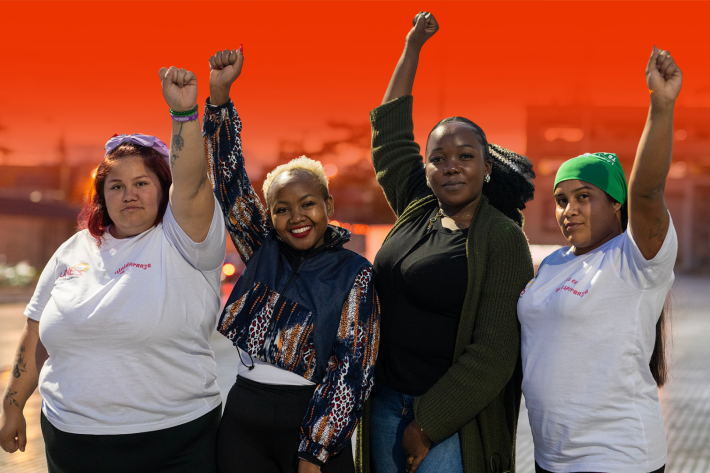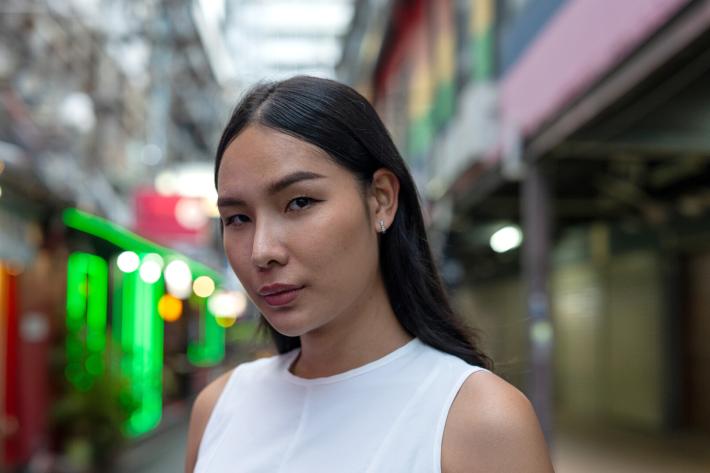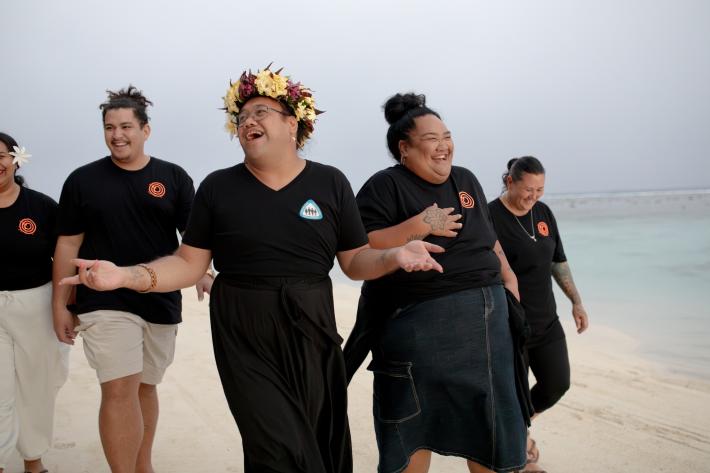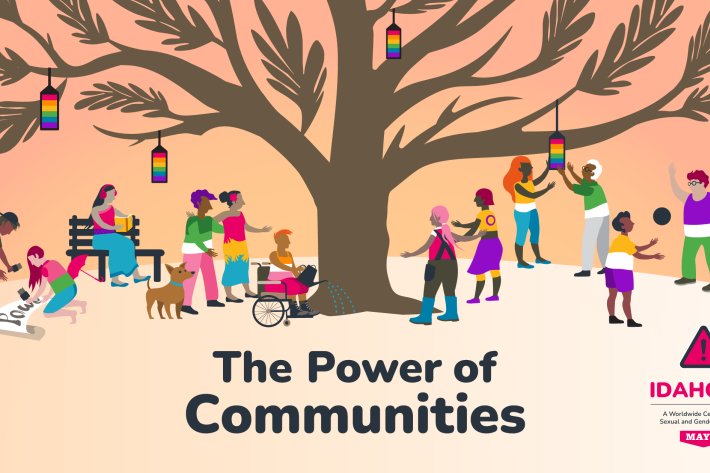
Spotlight
A selection of news from across the Federation
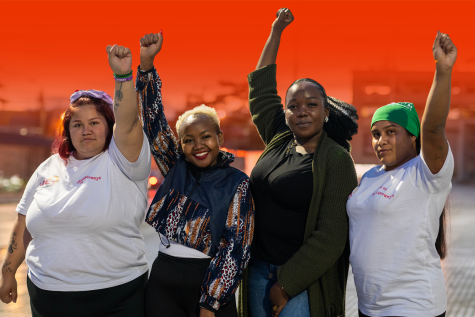
We Made It a Charter: IPPF’s Declaration of Values
Proud, bold, and united: we are values-led.
Filter our news by:


| 13 June 2019
ECHO Trial results show urgent need for great efforts in HIV prevention
IPPF’s Director-General, Dr Alvaro Bermejo has welcomed the publication today (Thursday 13 June) of the results of the Evidence for Contraceptive Options and HIV Outcomes (ECHO) trial – but warned they show how much more must be done urgently to combat HIV acquisition and offer real contraceptive choice. The ECHO clinical trial compared three common methods of contraception – DMPA-IM, Jadelle Implant and Copper IUD - and whether any of them increased the risk of acquiring HIV among women and girls at high risk. It was conducted at 12 sites in four countries, across South Africa, Eswatini (Swaziland), Zambia and Kenya. More than 7,800 women took part in the study, for up to 18 months. The trial did not find a statistically significant difference in HIV risk between the contraceptive methods it evaluated. But during the trial 397 of the women who took part acquired HIV. Dr Alvaro Bermejo said: “This has been an extremely important trial and we are pleased to see the results published. We do need to analyse them in greater deal, but it is already clear that the high rates of HIV and STI infections among those women who took part - despite individualised prevention efforts - represent an urgent cry for the integration of sexual and reproductive healthcare and HIV prevention. The results do not point to DMPA causing the increase in the risk of HIV infection some had feared, but the study has drawn attention to the many women – and countries – who have, in reality, a very limited choice of contraceptive methods available and the problems that causes. We have to ensure that a range of contraceptive options and the best counselling is available to women and girls who seek to prevent pregnancy and to protect them from HIV infection. That requires more investment , more coordination and prioritisation of sexual and reproductive healthcare.”

| 13 November 2018
New flagship health programme to transform the lives of millions of women and girls
The lives of millions of women and girls will be transformed by new sexual and reproductive healthcare programmes led by International Planned Parenthood Federation (IPPF) and Marie Stopes International (MSI) consortia across Africa and South Asia. The programmes will launch integrated healthcare expansion in 27 countries and were announced in Kigali at the International Conference on Family Planning today. The Women’s Integrated Sexual Health (WISH) programme is funded by the UK Department for International Development (DFID), to deliver access to life-saving contraception for six million couples per year. The Secretary of State for International Development, Penny Mordaunt said: "Investing in family planning gives women control over their own bodies and lives. It helps them complete their education, pursue job opportunities and challenge inequality around the world." The new programme will accelerate progress towards meeting global commitments on expanding access to contraception made by governments and civil society organisations through the Family Planning 2020 (FP2020) movement. The IPPF and MSI WISH consortia will ensure previously unreached people, especially young and poorer women, are able to access contraception and have the choice on whether, when and how often to have children. IPPF’s Director General Dr Alvaro Bermejo said the WISH programme would transform lives. He said: "This is a significant investment and a deep commitment to putting women at the heart of healthcare. Women and girls – of all ages, places, income and education – must have access to high quality, voluntary family planning care and information. We thank the UK Government for their commitment to this vital issue. Together, we can accelerate change by expanding integrated healthcare through our clinics and outreach services. More services, wider contraceptive options and better access to safe abortion, means the right care at the right time. More power for every girl and woman to decide what to do with her body, with her life, and with her future." The WISH programme will scale up efforts at country level, expanding reach to millions of new users of sexual and reproductive health services. Genet Mengistu, the Executive Director of the Family Guidance Association of Ethiopia (FGAE), an IPPF member, said: "This is an incredible opportunity to accelerate change for women and girls to decide their own futures. It will get family planning services to Ethiopian women, particularly to those underserved." Simon Cooke, CEO at MSI, said: "Through this funding, we and our partners will be able to bring quality sexual and reproductive health services to millions of women in some of the world’s poorest and most marginalised communities. For many, it will be their first chance to access any kind of contraception, empowering them to stay in education, forge a career, stay healthy and pursue their hopes and dreams for the future. With this landmark investment in women and girls, the UK Government is creating the right conditions to drive multiple other areas of development, from increasing the number of girls completing education to enabling couples and families in poverty to maximise their earning potential. We applaud DFID for its continued support for this vital and life-changing work." The £200 million investment to leading sexual and reproductive health service providers IPPF and MSI is made-up of two individual DFID WISH awards, through consortium arrangements. Lot 1 is a consortium managed by MSI with 7 of its country programmes and 6 IPPF Member Associations, with a focus on West and Central Africa. Lot 2 is a consortium managed by IPPF with 16 Member Associations and 8 MSI country programmes with a focus on East and Southern Africa and Asia.
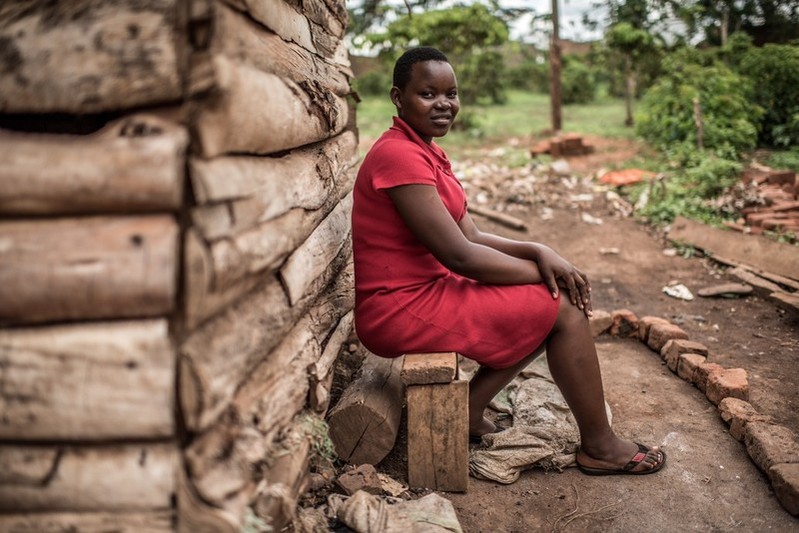
| 16 May 2017
Global Gag Rule expansion will leave a fatal legacy for generations
The lives of millions of the world’s poorest women and girls are in jeopardy because of the expansion of the US Global Gag Rule (GGR), IPPF’s Director General has said. The expansion of the GGR (or Mexico City Policy) will deny critical health care to many of the poorest women on the planet, forcing millions of them into unplanned pregnancies, unsafe abortions and leading to thousands of deaths. Tewodros Melesse was speaking after the announcement of the policy expansion last night. It means that access to critical affordable, high quality integrated reproductive healthcare services like contraception, Zika information, maternal health, ante-natal care, reproductive cancers, and HIV prevention and treatment will be denied around the world. The policy will hit hardest the women living at the margins of society – the poorest, the most remote and those under 25. Leaving millions behind and forced into unintended pregnancy, ill health or death because the essential services they need have or are being shut down. Tewodros Melesse, Director General, said: “This expansion of the Global Gag Rule is unprecedented and the largest of its kind. Leaving behind the hardest to reach and often poorest of marginalised women and communities is the worst possible situation. This policy asks IPPF to stop providing support, counselling and services which are entirely legal in the countries where our members provide them and women depend on them. We cannot do that. The consequences are fatal and will span generations. We believe women should be able to decide what happens to their bodies, safely and legally. We cannot accept a demand which we know will only increase the number of women being forced into pregnancy or worse. “ IPPF estimates that the withdrawal in funding from the Federation will lead to an additional 20,000 maternal deaths, 4.8 million unintended pregnancies and 1.7 million unsafe abortions. The expanded policy also obstructs the potential health partnerships on the ground in developing countries where IPPF Member Associations work closely with other medical organizations for referrals and support of clients. This means that the very valuable space between medical providers and patients will be compromised as referrals options become limited and as valuable services are closed. USAID has been a proud supporter of family planning and public health programming for decades. The enormous expense on USAID to administer this kind of order, for what could be a limited time, means the very money allocated to what they have done best – saving lives will be hugely diminished in impact and effectiveness. International Planned Parenthood Federation will lose 100 M USD in critical funding. On behalf of their members, the Federation issued a statement in January explaining why they can't sign the Global Gag Rule. Subscribe to our updates!
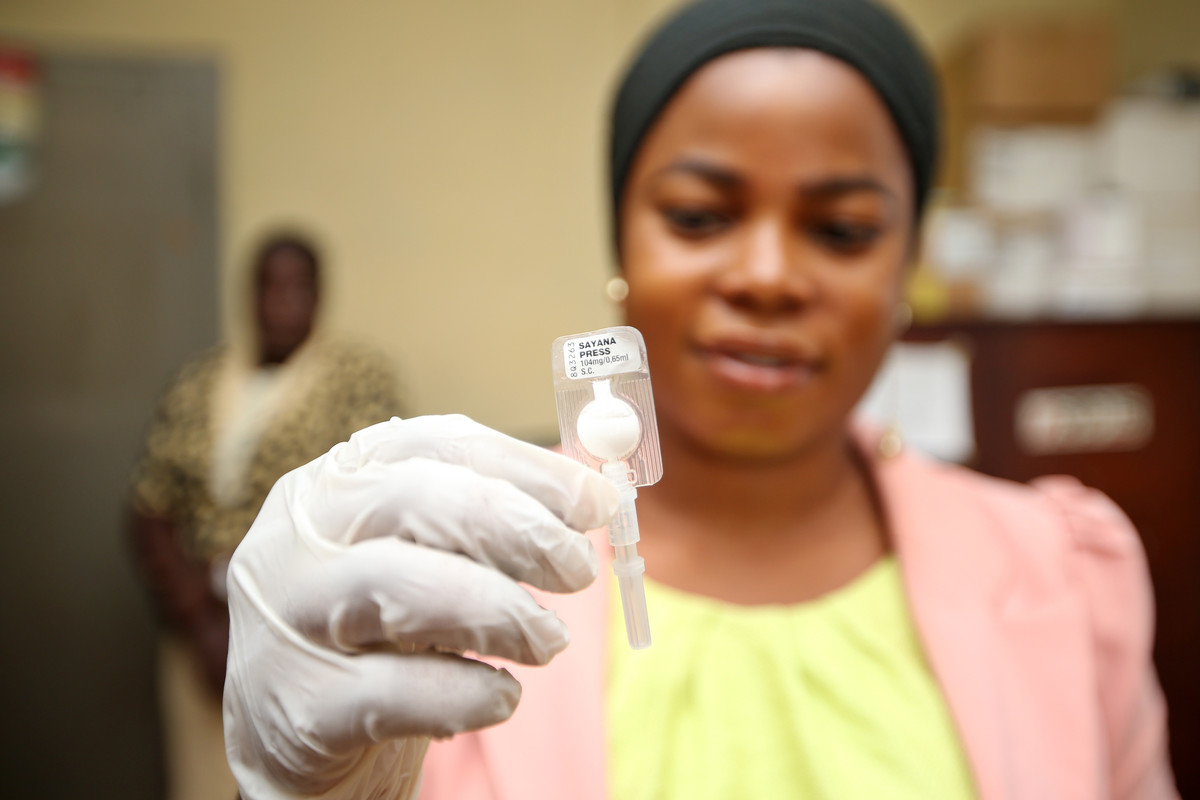
| 08 May 2017
Sayana efforts will help widen contraceptive choice for world’s poorest and neglected women says IPPF
Expanding contraceptive choices offers the potential to put power into women’s hands said the International Planned Parenthood Federation (IPPF) in reaction to the Sayana Press announcement by Pfizer BD, and the Bill and Melinda Gates Foundation, and CIFF today. IPPF is already playing a major role in the introduction of Sayana Press to increase access to the world’s most poorest and underserved women and girls. Sayana Press is offered as part of the contraceptive mix by IPPF’s Member Associations in Uganda, Nigeria, Burkina Faso and Senegal. They are doing this by providing Sayana Press at our extensive network of clinics, and by training community volunteers and government staff to give women Sayana Press in their own communities. Tewodros Melesse, Director General IPPF said; “This announcement is a great opportunity to enable women and girls who are often left behind because they are poor, unable to make decisions because of their partners, too far from a clinic or disabled to access contraception. Sayana Press has the potential to reach those who have never been able to access family planning before. We have seen that Sayana Press is popular with women in remote communities who can’t easily get to a clinic or drug shop. We are keen to see countries move towards community based distribution and ultimately, self-injections. All efforts must truly reach the last mile. Enabling women to administer in their own time and wherever they are is the only way to put power truly into women’s hands. It is a great step in helping to tackle the needs of the most poorest or neglected women and girls. But like any contraceptive, it must be offered as part of a broader mix of methods available and not favored more than others. Choice means every women and girl has the right to choose about their contraception wherever and whoever they are.” IPPF launched its annual global I Decide Campaign on family planning today. IPPF is fighting for a world where women everywhere can say "I decide". Support our call for universal access to contraception! Add your voice
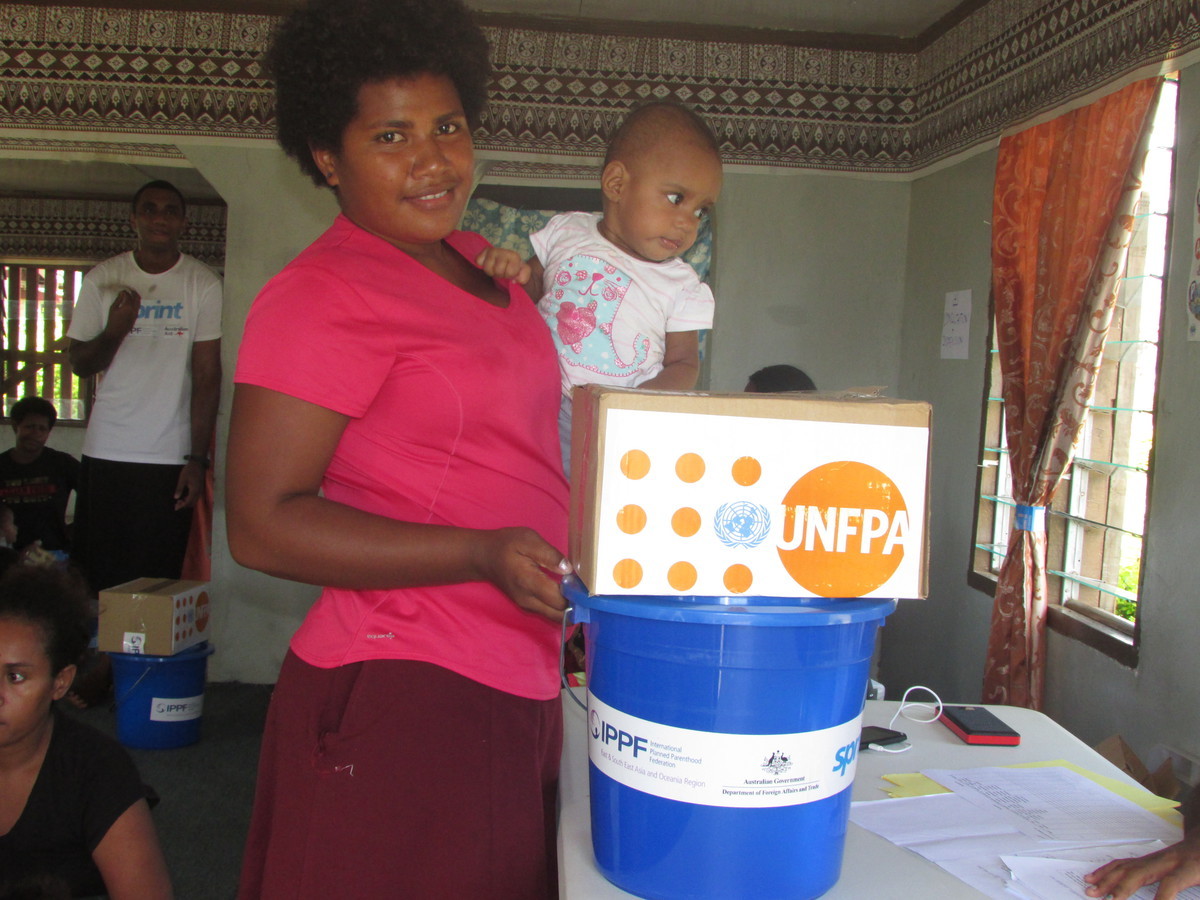
| 04 April 2017
IPPF reacts to US Government decision to withdraw funding from UNFPA
IPPF Director General Tewodros Melesse has said that a decision by the US Government to withdraw funding from the United Nations Population Fund will have “devastating consequences” for women and girls around the world. Mr Melesse said: “The money the US administration now wants to withdraw would have been spent on health care for some of the poorest and most vulnerable women and girls in the world. “It will take away funding for contraception, maternal care and the safe delivery of babies, as well as programmes to counter gender-based violence. “IPPF works closely with UNFPA in some of the most difficult situations in the world to provide this kind of care, especially in the poorest regions of the world’s poorest countries. The women and girls living in these situations are especially vulnerable, and this will have devastating consequences for them.” Mr Melesse added: “This is the second blow this year delivered to health care for women and girls around the world by the new US Administration. “The re-enactment of the Global Gag Rule (also known as the Mexico City Policy) has already denied US funding for contraception services, HIV programmes and work to counter the Zika outbreak to IPPF and other health organisations. “We estimate that the $100m in funding IPPF expects to lose will stop us from preventing 20,000 maternal deaths, will lead to 4.8m unintended pregnancies and 1.7 million unsafe abortions. “We should be clear. None of the funding being withdrawn by the US administration is spent in the provision of abortion or in support of coercive reproductive policies. This is a smokescreen for cuts in funding, nothing more. “As a rights-based organisation, IPPF works in partnership with UNFPA and other health and human rights organisations to provide tens of millions of women and girls with the right to choose how and when they use contraception and to access other live-saving health services. “UNFPA brings governments together to work on commonly-agreed policies such as the Sustainable Development Goals, which are vital in the fight to try to ensure sexual and reproductive health care for everyone. “I am deeply sorry that for a second time in the space of three months the US Administration has decided to deny critical health services to the people who need them most. We know that tens of thousands of lives will be lost as a result.”

| 07 April 2017
IPPF defends UN agency on BBC World News
IPPF Director General Tewodros Melesse has defended the record of the United Nations Population Fund (UNFPA) in an interview with BBC World News, the BBC’s global television news channel. Speaking to presenter Philippa Thomas on the programme “Impact”, Mr Melesse rubbished claims from the Trump administration – used to justify the withdrawal of US funding – that UNFPA in any way supported coercive family policies in China. He explained that IPPF and UNFPA, with which IPPF partners across the world to provide vital reproductive health care for millions of women and girls – were committed to defending rights and increasing choice. He added that the loss of funding to UNFPA and IPPF – through the re-imposition of the so-called Global Gag Rule by President Trump – would cost the lives of tens of thousands of women and lead to millions of additional unplanned pregnancies and unsafe abortions. Subscribe to IPPF's updates!

| 09 March 2017
IPPF at the She Decides Conference
The International Planned Parenthood Federation (IPPF) is grateful to the international community for its ongoing support for women and girls through the She Decides initiative. 2 March 2017 was a powerful moment for our movement. The recent return of the Global Gag Rule, has left the community concerned and frustrated. But many governments, as well as other entities, have stepped up to the challenge. The She Decides initiative and conference offered the platform and the momentum to help shape a new global partnership for sexual and reproductive health and rights (SRHR). #Ploumen: ‘People - especially women & girls - all over the world should feel empowered and supported in their right to decide’ #SheDecides pic.twitter.com/HBrUOmz8KF — Netherlands ?? MFA (@DutchMFA) March 2, 2017 In total €181 Million was pledged at the conference. Many of our Member Associations spoke at the conference to give powerful testimonies of how they are working on women’s sexual and reproductive health and rights. They highlighted the need for financial and political support to deliver these lifesaving programmes. IPPF Director General gave a passionate speech on how the Global Gag Rule impacts the Federations’ work. He talked about how this was not about money but human rights. "When it comes to women's Rights, there's no North or South, it's a GLOBAL movement until #SheDecides" - T. Melesse @ippf pic.twitter.com/h7QMNIy3Lq — IPPF Global (@ippf) March 2, 2017 IPPF was delighted to hear that the Canadian Government announced a $4 million as part of their ongoing support to women’s rights. This was one among the many pledges of support IPPF received. Women rights are human rights. Canada just pledged up to $20M to @UNFPA @IpasOrg @ippf @MarieStopes @PSIimpact #SheDecides pic.twitter.com/m7KLKK1eGE — Marie-Claude Bibeau (@mclaudebibeau) March 2, 2017 Anonymous donation of $50M brings #Shedecide funding to €181M. Thank you @Ploumen4Women for starting it and all donors for making it HUGE! — IPPF Global (@ippf) March 2, 2017 There was strong commitment from the European Commission. The European Commissioner for International Cooperation and Development, stated that the Commission will continue to support sexual and reproductive health and rights, comprehensive family planning, education, information and preventive health programme. He also proudly announced that we will continue to support the work of our partners - like UNFPA, UNICEF, IPPF and many NGOs - to improve the lives of women and girls. The Conference was just the beginning. Mobilising the international support and commitment of 50 governments to safeguard women’s sexual and reproductive health and rights. We will continue to work with Governments, foundations and other actors to ensure that this journey becomes a reality. Because in the end it is she who must decide. The result after just 5 weeks, minister #Ploumen on #SheDecides at the end of the Brussels conference pic.twitter.com/wwit5ATG5z — Netherlands ?? MFA (@DutchMFA) March 2, 2017 Subscribe to our updates! SUPPORT OUR WORK WITH A DONATION

| 02 February 2017
The human cost of the Global Gag Rule
IPPF has now compiled data outlining how the reinstatement of the Global Gag Rule will affect people’s health around the world. Our global network of local partners delivers more than 300 services every minute of every day. During President Trump’s term, we will forego approximately USD$100m funding from the US government, which would have supported our family planning and HIV programmes for women with the greatest need for these health care services. The regions most affected are sub-Saharan Africa, South Asia and Latin America and the Caribbean. In practical terms, this level of funding could have prevented: 20,000 maternal deaths 4.8 million unintended pregnancies 1.7 million unsafe abortions It could have also provided: treatment to 275,000 pregnant women living with HIV to protect their health and help prevent transmission of HIV to their infants 70 million condoms to prevent unintended pregnancies, HIV and other STIs 725,000 HIV tests to enable people to know their HIV status The foregone funding could have also treated 525,000 sexually transmitted infections. As an organisation that seeks to protect and improve the lives of women, men and children around the world, IPPF and its partners in 171 countries will not sign a policy that denies human rights and puts the lives of women at risk. We are working with governments and others to bridge this new funding gap and help keep our clinics open. Sign up now to get updates on how you can be involved and make a difference. JOIN OUR THUNDERCLAP TO SPREAD THE MESSAGE SUPPORT OUR WORK WITH A DONATION
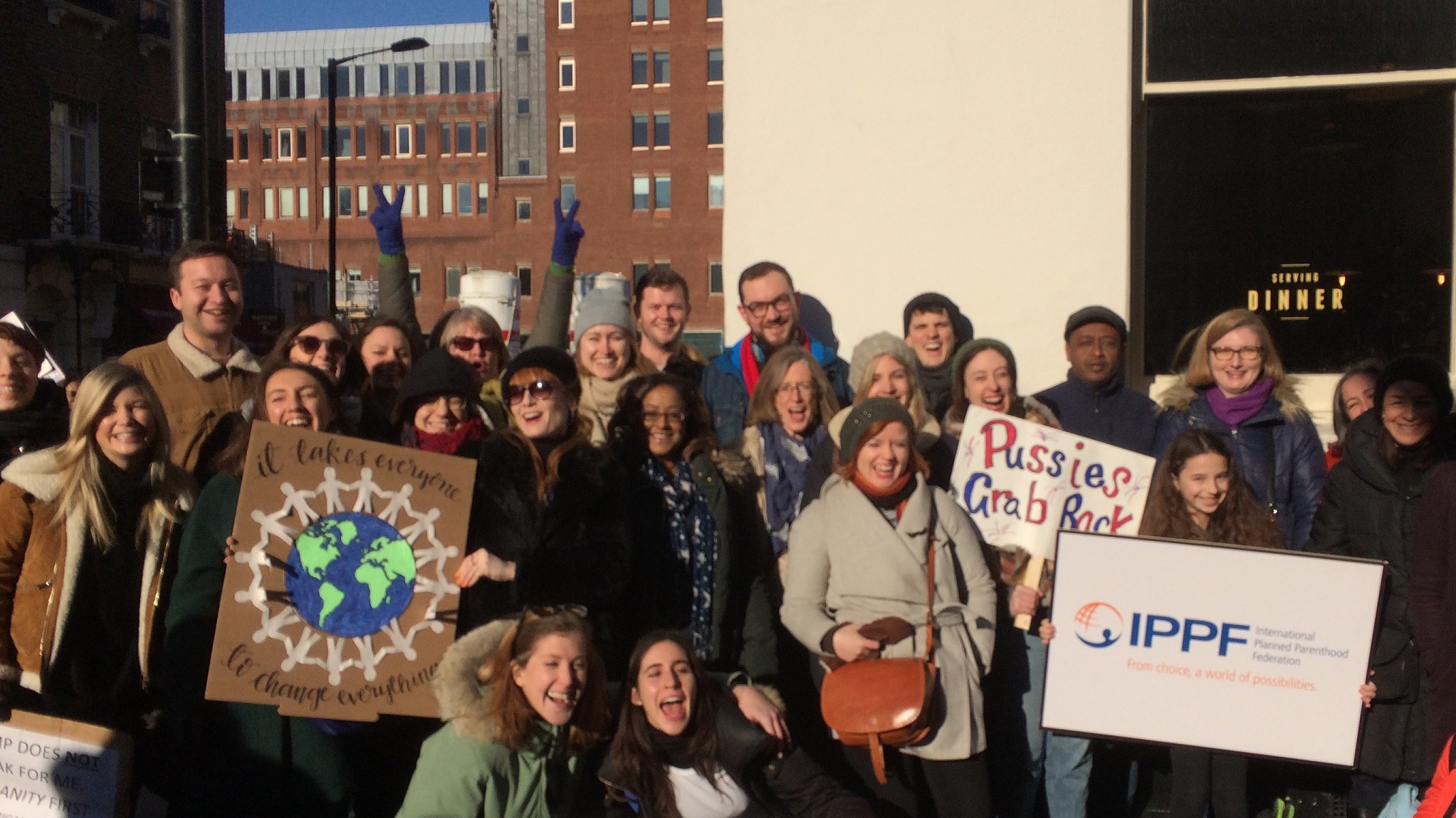
| 24 January 2017
IPPF speaks out against the Global Gag Rule
IPPF stands to lose $100 million USD received from the US, even though none of that money is used for abortion services. IPPF spoke out against Trump's reinstatement of the harmful Global Gag Rule (aka Mexico City Policy) to both BBC's Woman's Hour radio show and Australia's ABC 24 News. Our Member Associations have also spoken out against this violation of rights that service restrictions will lead to: "Funding cuts would mean we can't support 37 districts including supporting Government of Nepal effort on sexual and reproductive Health and rights. Additionally we would not be able to run community clinics or mobile health days or train health care workers. The impact also means we would lose essential medical staff like nurses, doctors and health experts. It would be devastating. " - Ms. Amu Singh Sijapati, President of Family Planning Association of Nepal As one of the biggest family planning organizations in the world, we work in over 170 countries to deliver integrated sexual and reproductive health services to the most marginalized women and communities around the globe. Funding cuts will limit the range of services and restricts how well they can be accessed in remote and rural areas by those who can’t afford transport, food or housing, and will now have to pay for services from other providers who charge more for treatment. "Our projects make a real difference. Young people living with HIV face stigma and violence which is a big problem for girls here in Kenya. These issues create barriers for getting care which means higher risks of ill health and harm. It’s vital that we work within local communities and offer services that recognise these specific needs. Without further funding FHOK may be unable to continue this support, scale up or replicate in other parts of Kenya. It would mean denying services to those who need them the most." - Edward Marienga, Executive Director -Family Health Options of Kenya Putting a ‘gag order’ on local providers who know the specific laws and needs of their communities flies in the face of common sense and reason,” said Marta Royo, Executive Director of Profamilia Colombia, an IPPF Member Association. "The impact of the rule under other U.S. Administrations has been dramatic—many organizations were forced to slash services or even shut their doors because they lost US funding for even mentioning abortion. As a result, women lost access to maternal health care, treatment for HIV and contraception that would help them prevent unintended pregnancies in the first place. Unsafe abortion is one of the leading causes of maternal death in the world and evidence has shown that denying women’s access to abortion doesn’t reduce the incidence of abortion; it just makes it unsafe.” WANT TO GET INVOLVED? SUBSCRIBE NOW TO GET UPDATES FROM IPPF SUPPORT OUR WORK WITH A DONATION View my Flipboard Magazine.

| 28 November 2016
IPPF joins Durex on World AIDS Day to detail the risks of unprotected sex
“Open Umbrella with Raindrops” emoji revealed as the people’s choice following a global poll* in response to Unicode’s refusal to create an official Condom Emoji. To mark World AIDS Day Durex calls for people to use and share the “Umbrella with Raindrops” emoji to help raise awareness of the risks associated with unprotected sex More than 75% of 16-35 year olds surveyed1 use emojis to discuss sex, with 9 out of 10 claiming that a safe sex emoji would help them to talk more openly about safe sex Almost 50% of 16-35 year olds think that HIV is not something that could ever affect them** despite the fact that every 30 seconds a young person is infected with the virus*** As part of Durex’s ongoing #CondomEmoji campaign, the World’s leading sexual wellbeing brand has today announced “Umbrella with Raindrops” as the overwhelmingly preferred choice in a global poll* to name the unofficial safe sex emoji. To mark World AIDS Day on December 1st, Durex is calling for people across the globe to use and share the emoji in order to raise awareness of the risks associated with unprotected sex and to demonstrate to Unicode the need for an official #CondomEmoji to be approved and appear on every smartphone. The campaign was launched following the shocking revelation that almost half of 16-35 year olds surveyed felt that HIV is not something that could ever affect them despite the reality that every 30 seconds a young person is infected with HIV***. More than 60% of young people surveyed* admitted to being uncomfortable discussing safe sex, with 72% of respondants admitting they found it easier to express emotions using emojis and more than three quarters admitted that they used emojis to discuss sex and relationships. When questioned 9 out of 10 agreed that an official #CondomEmoji would be something that would help them to talk more openly about safe sex. Durex Global Category Director, Volker Sydow, said: “At Durex we believe that for this World AIDS Day identifying the unofficial safe sex emoji is an important step that helps to empower young people to put safe sex back on the agenda, supporting the fight to reduce the spread of HIV and AIDS. We are asking people to show their support for the cause by using this unofficial safe sex emoji and sharing the hashtag #CondomEmoji.” The campaign has also received the support of the International Planned Parenthood Association (IPPF), with Director General Tewodros Melesse adding: “Safe sex awareness continues to be an important global challenge. We support Durex’s campaign in helping make young people think about protection. On World AIDS Day we will be backing this effort to help raise awarness of the risks associated with unprotected sex.” Durex have created an online video as part of the campaign: Sources: * 3GEM research questioning 3500 people from UK, USA, Brazil, China, India and South Africa commissioned by Durex – UK, October 2016 ** Someone Like Me, VIMN & Brand Solutions Insight with Tapestry Research, 2014 *** UNAIDS. Global Report 2010, Core Slides, Slide 11 About Durex Durex® is the #1 sexual wellbeing brand worldwide, producing a wide range of products, including high quality condoms, intimate lubricants and personal massagers. With over 80 years of experience in the bedroom, Durex is dedicated to inspiring lovers to love sex safely. That is why Durex will never stop innovating with new products that enhance the sexual experience, helping couples get closer and go further together. For more information, go to www.Durex.com. About RB* RB* is the world’s leading consumer health and hygiene company. The company has operations in over 60 countries, with headquarters in London, Dubai and Amsterdam, and sales in most countries across the globe. The company employs approximately c. 37,000 people worldwide. Inspired by a purpose to deliver innovative solutions for healthier lives and happier homes, RB is in the top 20 companies listed on the London Stock Exchange. We are the global No 1or No 2 in the majority of our fast-growing categories, driven by an exceptional focus on innovation. Our health, hygiene and home portfolio is led by our global Powerbrands including Nurofen, Strepsils Gaviscon, Mucinex, Durex, Scholl, Clearasil, Lysol, Dettol, Veet, Harpic, Cillit Bang, Mortein, Finish, Vanish, Calgon, Air Wick, Woolite and French’s. Our Powerbrands represent 80% of net revenue. RB is redefining the world of consumer health and hygiene. Our people and unique culture are at the heart of our success. We have a drive for achievement and a passion to outperform wherever we focus, including sustainability where we are targeting a 1/3 reduction in water impact, 1/3 reduction in carbon and 1/3 of net revenue from more sustainable products. We are proud to be Save the Children’s largest global partner, with a new vision to radically reduce one the world’s largest killer of under 5s, diarrhoea. For more information visit www.rb.com. *RB is the trading name of Reckitt Benckiser group of companies








